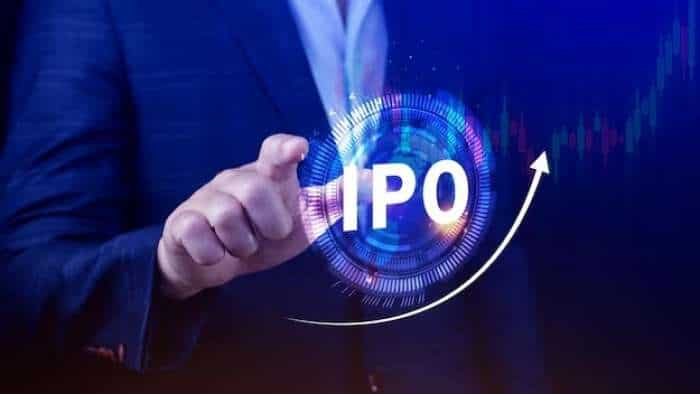Ecommerce, social networking top disruptive biz models: Survey
Social networking was second on the business models list and, similar to e-commerce companies, social media firms are striving to capture ever-larger shares of the consumer`s attention and wallet, with new offerings like exclusive and original content, live sporting events, augmented/virtual reality, educational services, and cryptocurrencies.

E-commerce, social networking and digital payment platforms top the list of most disruptive business models, revealed a new KPMG survey on Wednesday.
In a survey of over 740 technology industry business leaders globally, Amazon, Apple and Alibaba emerged as the most disruptive companies while DJI, Google, Netflix, Airbnb, Microsoft, Facebook, and Baidu rounded out the top 10 list.
Maintaining its position on the list of most-disruptive business models over the next few years, e-commerce continues to capture attention with its dramatic growth prospects.
"The question is, can the companies on this list, and those seeking to join the list, run the gauntlet of evolving competition, regulation, and geopolitics while remaining innovative and nimble enough to retain their leadership positions and aspirations," Tim Zanni, KPMG Global Technology Sector Leader, said in a statement.
Global e-commerce spending is expected to increase from $3.5 trillion in 2019 to $6.5 trillion in 2023, according to eMarketer.
Social networking was second on the business models list and, similar to e-commerce companies, social media firms are striving to capture ever-larger shares of the consumer`s attention and wallet, with new offerings like exclusive and original content, live sporting events, augmented/virtual reality, educational services, and cryptocurrencies.
"India is seeing a similar trend in technology disrupting business models. With over 1 billion mobile subscribers and more than 665 million internet subscriptions, India`s mobile first economy is shaping the contours of new business models in B2C and B2B businesses.
"E-commerce and social networking have changed consumer behaviour resulting in traditional business models to innovate and transform. Retail, financial services, and technology are the sectors likely to be most disrupted because of tech innovations," said Satya Easwaran, Partner and Head-Telecom, Media and Technology sector, KPMG India.
The study found some divergent views between tech industry millennials and tech industry leaders on the topic of emerging global technology innovation visionaries.
Among tech business leaders, Google CEO Sundar Pichai topped the list, followed by Tesla and SpaceX CEO Elon Musk. Millennials also identified Huawei CEO Ren Zhengfei, Xiaomi CEO Lei Jun, and SoftBank CEO Masayoshi Son.
Watch Zee Business video below:
"Knowing who these visionaries are, their characteristics, and their leadership styles may help tech companies and other stakeholders to better understand the interests and expectations of the millennial workforce -- tomorrow`s future leaders -- who may have, or develop, similar interests and attributes," Zanni added.
Get Latest Business News, Stock Market Updates and Videos; Check your tax outgo through Income Tax Calculator and save money through our Personal Finance coverage. Check Business Breaking News Live on Zee Business Twitter and Facebook. Subscribe on YouTube.
RECOMMENDED STORIES

Power of Rs 3,000 SIP: In how many years, Rs 3,000 monthly investment can generate corpuses of Rs 2 crore and Rs 3 crore? Know here

after bumper 2024 rs 2 lakh crore worth ipos expected in 2025 primary market nsdl avanse financial ecom express sebi approval

Rs 1,000 Monthly SIP for 40 Years vs Rs 10,000 Monthly SIP for 20 Years: Which can give you higher corpus in long term? Calculations inside

Top 7 ETFs With Highest Returns in 1 Year: No. 1 ETF has turned Rs 8,78,787 investment into Rs 13,95,091; know how others have fared

Power of Compounding: Rs 5 lakh lump sum investment in 3 flexi schemes has grown to at least Rs 15.5 lakh in 5 years; see list
08:28 PM IST








 Government launches AI tools, e-commerce safety measures to boost consumer protection
Government launches AI tools, e-commerce safety measures to boost consumer protection GreenLine partners with Flipkart to power greener supply chains
GreenLine partners with Flipkart to power greener supply chains Amazon expands cross-border logistics programme; launches export navigator for sellers
Amazon expands cross-border logistics programme; launches export navigator for sellers US homecare brand Bissell returns to India after gap of 6 years
US homecare brand Bissell returns to India after gap of 6 years  BEYOBO, with Rs 1 crore PAT in September, ready to export to 200+ countries
BEYOBO, with Rs 1 crore PAT in September, ready to export to 200+ countries